With the levels of seaweed (sargassum) on the beaches of the Riviera Maya and Cancun continuing to rise, a task force has been formed to address the problem. The task force consists of scientists, researchers, government officials, academics, and businessmen. These individuals will not only focus on the removal of the sargassum that has already washed up on the area’s beaches, but also on preventing the sargassum from reaching the coast in the future.
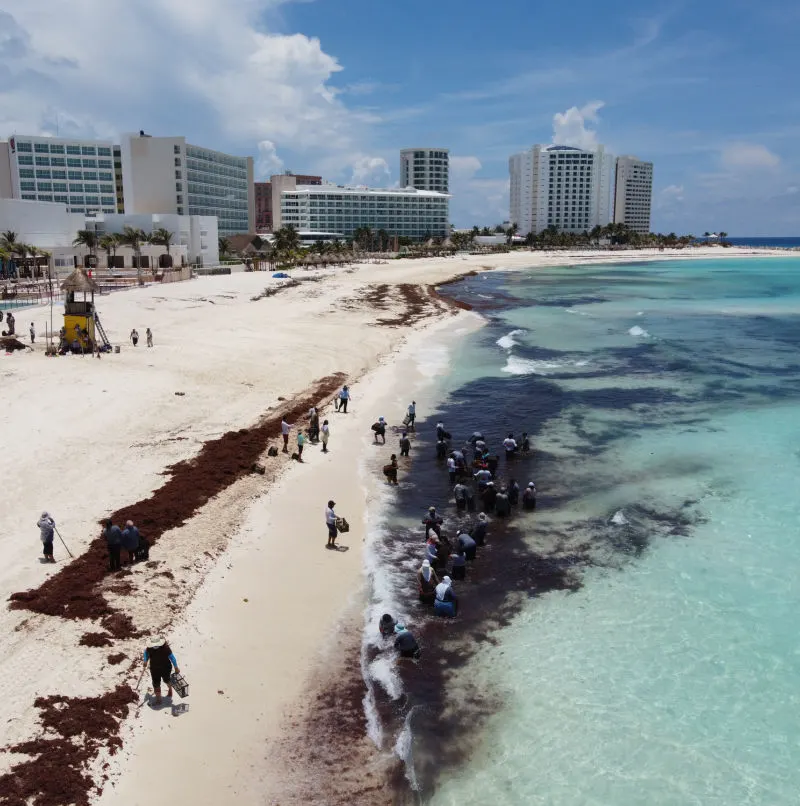
Sargassum, also known as sargasso, is a type of seaweed commonly seen on the beaches of the Mexican Caribbean and in recent years it seems to have gotten worse. When the sargassum begins to rot and decompose it emits a terrible smell, not unlike the smell of rotten eggs. Officials are worried that the stinky seaweed is going to be even more of a problem than last year and deter tourists from visiting popular beach towns along the coast.
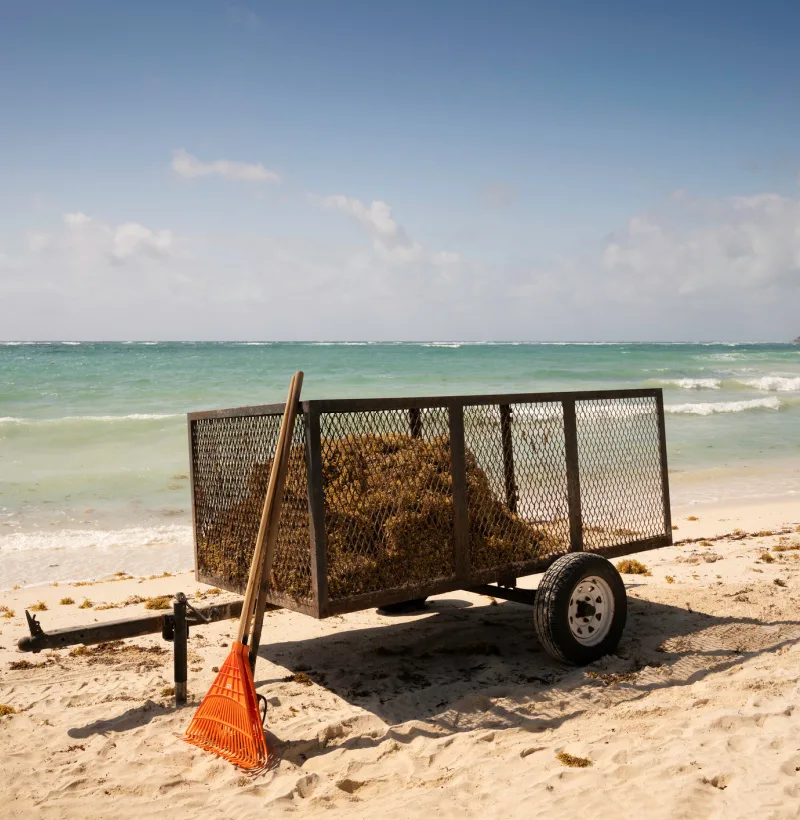
In 2021, thousands of pounds of sargassum washed up on the shores of beaches in Cancun and the Riviera Maya area. Due to the excessive levels seen on the beaches last year, it is regarded as one of the worst years for sargassum in recent history. Prior to that 2019 was considered one of the worst years but the problem seems to keep growing. With this task force in place, maybe some real solutions can be developed to minimize the problem before it starts.
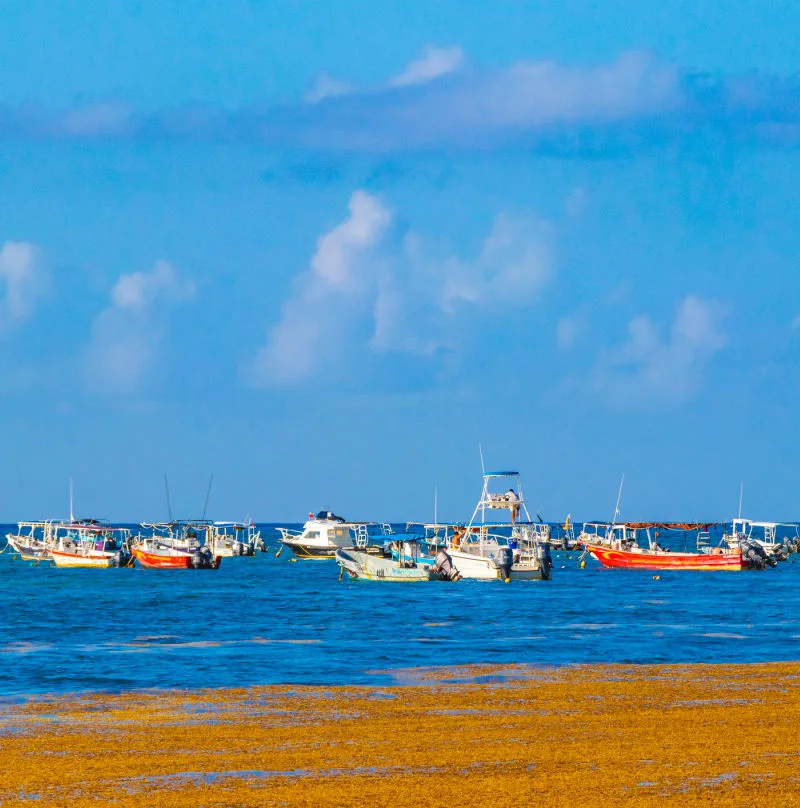
Some of the ways the issue will be addressed include:
- Providing collection ships to collect the sargassum before it reaches the coast. These will be sent to the areas with the biggest problem first.
- Installation of more than five miles of barriers that will help stop the sargassum before it makes it to the beaches.
- The use of sweepers to collect the sargassum that has already made it to land in order to keep the beaches clean for residents and tourists.
- Implementing a warning system that will forecast and monitor the arrival of sargassum in the different areas where it is a problem.
- Developing a daily and weekly reporting system that will allow the task force to deal with the issue as it occurs.
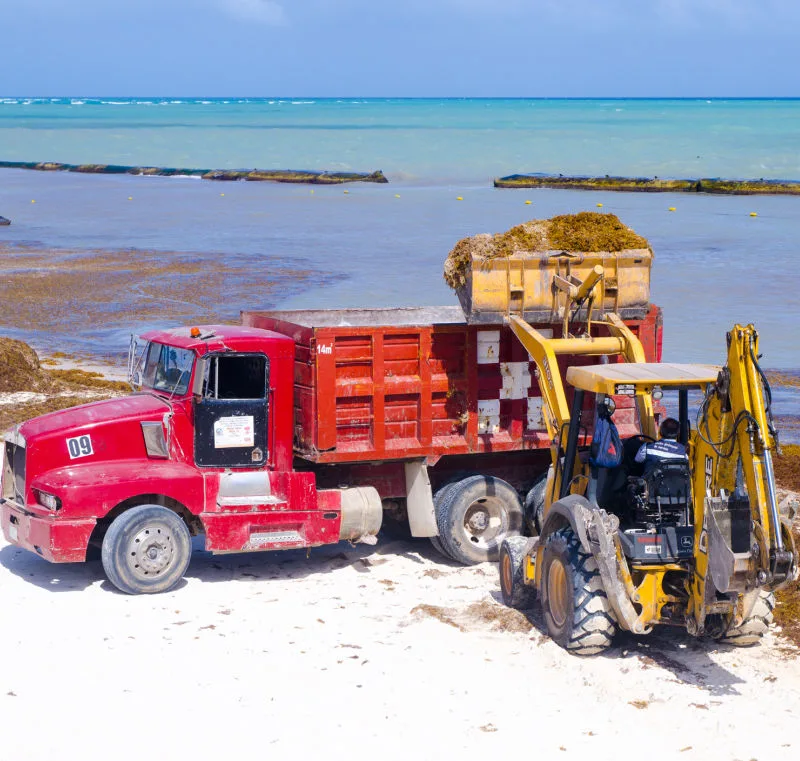
According to officials, multiple vessels have undergone maintenance to prepare for the continued massive arrival of the sargassum. These vessels and additional barriers are ready to go to the areas that will be most affected in the coming weeks.
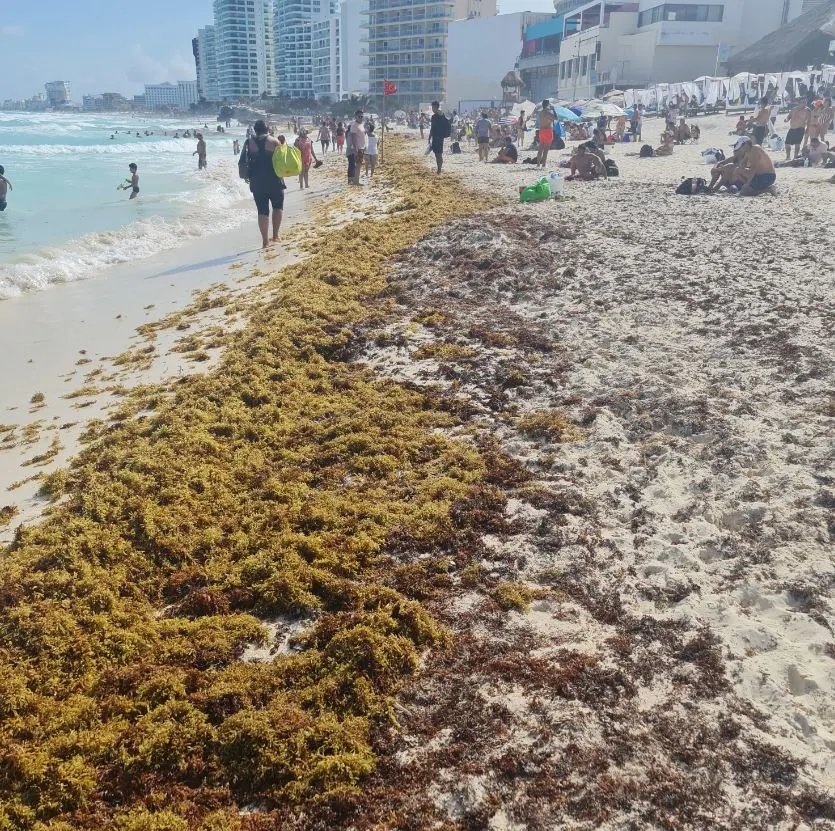
Sargassum has been around for a very long time, but prior to about eight years ago, it would generally stay out to sea in an area of the North Atlantic. This area was referred to as the Sargasso Sea. Now, rather than being concentrated in one area, it stretches from the Atlantic to the Gulf of Mexico, where it continuously washes up on some of the most popular Riviera Maya beaches.
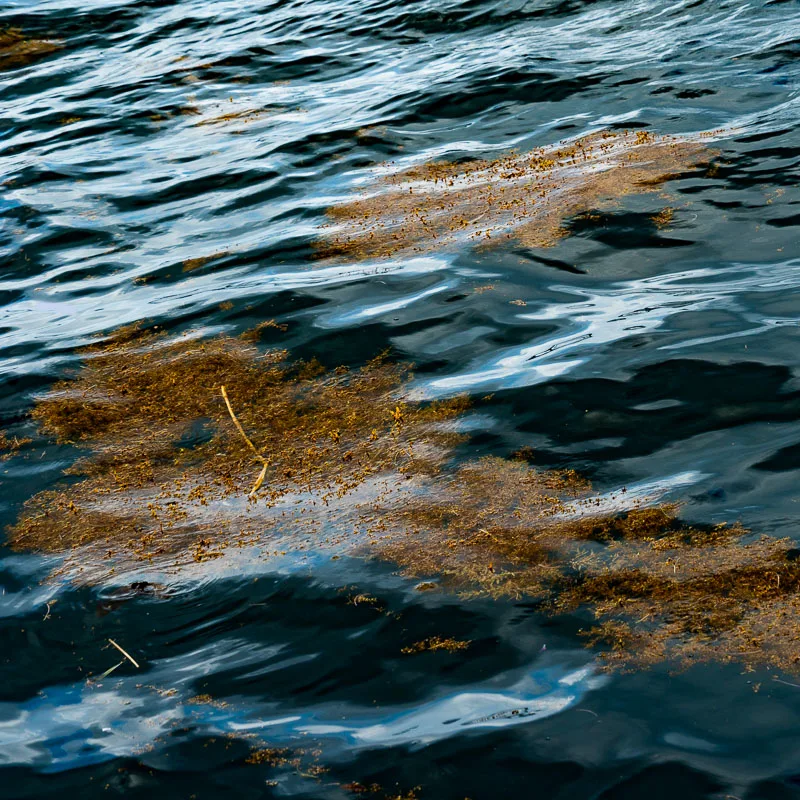
Last year, and in 2019, the years that were considered to be the worst in recent history, millions of dollars were spent on the removal of sargassum alone. More money was spent on trying to prevent it from reaching the shore. Combine the spending on prevention and removal with the loss of tourism money, due to the beaches being covered with sargassum, and it becomes a very expensive problem to deal with. With the development of the task force, there is hope that new ideas can be implemented in order to begin addressing the sargassum issue before it reaches the high levels we have been seeing in recent years.
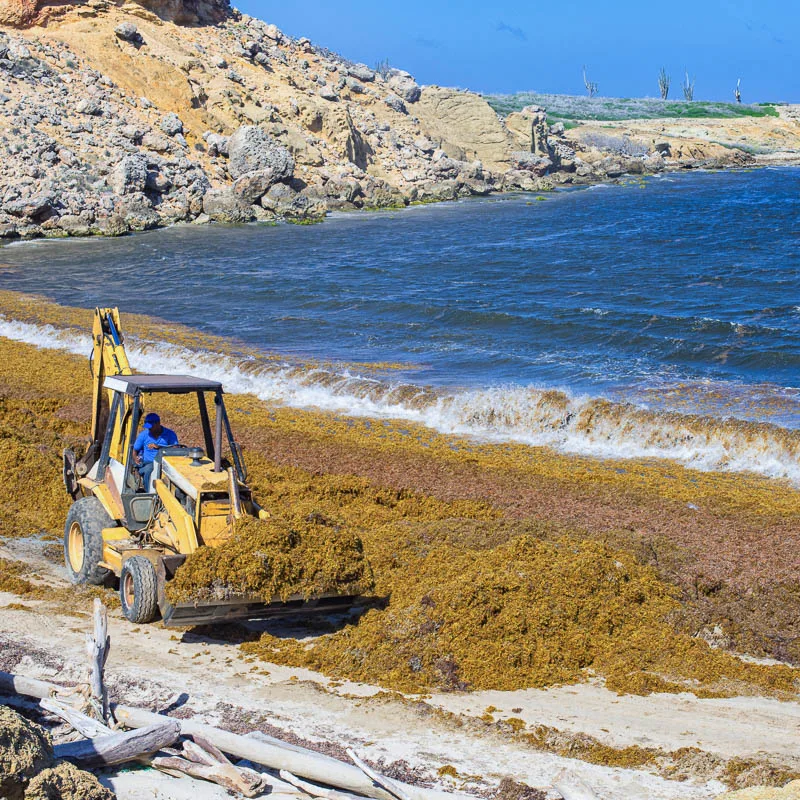
Despite the high levels of sargassum on Cancun and Riviera Maya beaches, though, they continue to see massive numbers of tourists arriving every day. This is expected to continue in the coming weeks so a major cleanup of the beaches will be welcome news for tourists and residents alike.
Plan Your Next Cancun Vacation:
Traveler Alert: Don’t Forget Travel Insurance For Your Next Trip!
Choose From Thousands of Cancun and Riviera Maya Hotels, Resorts and Hostels with Free Cancellation On Most Properties
↓ Join the community ↓
The Cancun Sun Community FB group has all the latest travel news, conversations and tourism Q&A’s for the Mexican Caribbean

Subscribe to our Latest Posts
Enter your email address to subscribe to The Cancun Sun’s latest breaking news affecting travelers, straight to your inbox.

Gary reimer
Thursday 14th of April 2022
About time, never use to be there, at least not this bad, been going there every year for 15 years